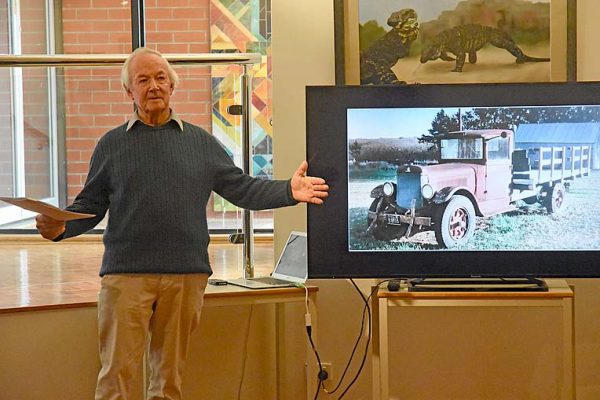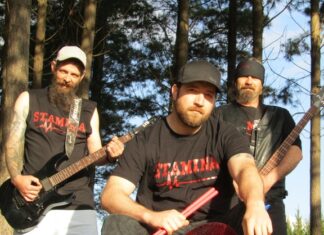
THE diary of a local man has taken residents back to Millicent’s earlier times when there were “less rules so people had to use their common sense”.
Greenways grazier John Andre was a recent guest speaker at the Millicent Public Library and shared stories from the diaries of his late father James Wilfred “Jim” Andre.
John spoke about his father and uncle Bob’s work, farm and life adventures in the 1930s and also briefly touched on World War II.
“I often wonder how these two lads survived in the 1930s,” John said.
“They were city boys who had an attitude of hard work and hard play.
“They had a good education and always saw good in people.
“Their father would always be sitting up when they returned from parties with a long neck of Ballarat Bitter from the family brewery and they would sit and talk about who they met and so on.
“As we go through some excerpts from the diaries you will notice massive difference in life back then – they had no telephone connection, let alone mobile phones, the vehicles were constantly breaking down or getting punctures and until the war there was plenty of labour and fairly low cost too.
“There were less rules, people were not told what they were to do, they had to use their common sense.”
The Andre brothers moved into a slab hut on a partly developed farm, which they took possession of and later named Ceres, north of Furner in October 1929.
They lived in the hut for over a year until they made a bigger one from corrugated iron and timber they had taken from an old bank they bought in Millicent.
“I’m sure they enjoyed buying a bank,” John said.
“The story goes that a bank manager returned from a visit out to Ceres shaking his head saying ‘no hope for those Andre boys, their bottle heap is bigger than their house’.”
John further shared with everyone one of his favourite entries from his father’s diary.
“I think one of the funniest stories was they were in Millicent and had a good evening with their friend Henry, who really enjoyed a night out,” he said.
“He flaked out so they put him on the back of a truck and headed to Furner.
“It was custom to have a comfort stop before Furner, but when they got out they noticed Henry had rolled off the back and they set about looking for him.
“With poor lights, it was rather hazardous to drive back looking in case they ran him over, but they avoided that and found him unharmed and quite relaxed on the side of the road.”
Following their lives on the farm, John also spoke of Jim and Bob’s first sheep sale.
The pair walked the sheep from Furner to Millicent for the sale, however bidding was “very poor” so they decided to walk the livestock home again – a seven day round trip.
Further discussed was compulsory sheep dipping, the building of a woolshed on Ceres, cultivation and drilling of a summer crop, increasing wool production and fencing Mount Bruce, as well as early vehicles and building a telephone line.
To finish John briefly shared entries from WWII in which Bob and also Mick (Jim’s brother-in-law) enlisted.
“September 1, 1942, a wire from Air Board read: ‘Bob missing’,” John said.
“Rang the priest to notify Bob’s wife Jean.
“I caught the bus to the family in Ballarat the next day.
“Cabled uncle Moussa in London to get earliest information on Bob and Father Stephenson called at Glendara, their family home.
“Two weeks later, a telegram that Bob was a prisoner of war.
“Rang the family and celebrated.
“August 15, got Corriedales in to mark, but peace declared so I knocked them off at 10am.
“Had a bonfire at night – burnt effigies of Hitler and To Jo.
“Next day a second V Day holiday.”
Millicent Public Library volunteers have been transcribing Jim’s diaries, which cover 70 years of farming in Furner.
“I would suggest that as these sort of transcripts become available from the Millicent library we would do well to peruse them and ask ourselves whether there are aspects of life back then which we would adapt to enrich our lives in today’s busy world,” John said.








